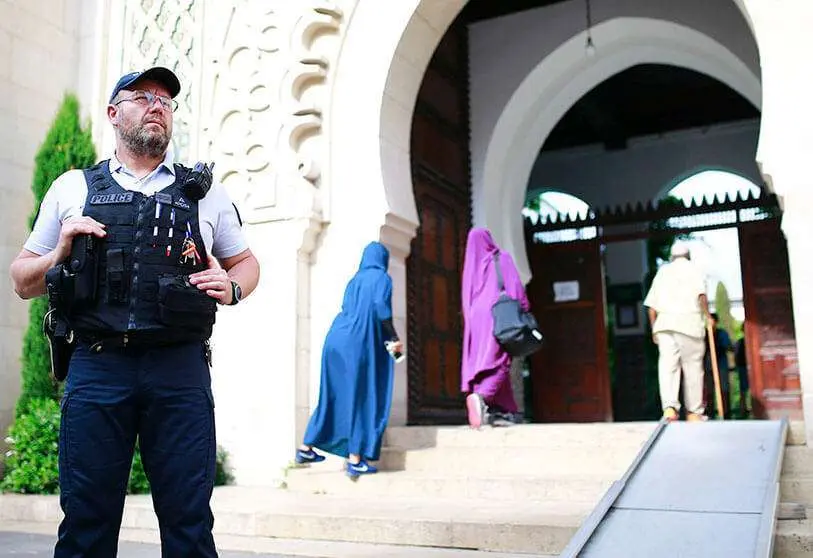France finally confronts radical Islamism

The law enshrining the separation of Church and State, which made France the most advanced country in the effective implementation of secularism, dates from 1905. Although the aim of the law was to untie the State from the servitudes and commitments made to the Catholic Church, the legislators of the time referred to "all religions", obviously thinking of the competition of the Protestants, who were involved in so many bloody struggles in ancient Gaul. The text did not show any particular concern for the Muslim religion, which was mainly practiced in the African territories that France had incorporated under its colonial regime.
With its abundant supply of massacres and other bloody episodes, the progressive and rapid decolonisation which began at the end of the Second World War and was decisively promoted by the United Nations led to a growing flow of emigrants from the newly independent countries to the former metropolis, which believed that this would achieve two goals: to wash away its national conscience as a result of the excesses committed in the wars of independence, which were particularly serious in the case of Algeria, and to maintain a strong economic and commercial dependence on its former colonies.
Both objectives have been achieved: France has already made gestures of acknowledgement of its colonialist excesses, while at the same time boasting of its major cultural, financial and human development contributions to those territories, "as we are not going to admit that everything we did was intrinsically bad". It has also contributed to educating the emerging elites of those countries, so that it is rare for the leaders of their former colonies not to have spent their adolescence and youth in French universities or military academies.
But France has also incorporated into its population a huge number of immigrants who, in addition to contributing with their mostly manual labour to the prosperity of the host country, have imported both the best and the least good of Islam. The second, third and even fourth generations of this migratory flood are French citizens with full rights, having been born, lived and educated entirely in France. Between five and seven million Muslims are thus part of French society.
Just as immigrants from southern European, Latin American or Asian countries tend to group together according to their common origins in particular neighbourhoods, Africans have done the same. However, it is precisely those of Arab origin who, citing all kinds of supposed discrimination and social affronts, have turned a good part of their districts into veritable ghettos, which have become easy prey for radical Islamism for over two decades.
These are the so-called banlieus, suburbs which the police are reluctant even to enter, and where the customs and, ultimately, the power of those who aspire to supplant the authority of the French state have been gradually established. Moreover, from protesting against discrimination, the laws of the Republic have been progressively challenged, even leading to the rejection of its legal order in the face of Islamic law.
The latest survey on the subject, which has tried the patience of the Elysée Palace, shows that 74 percent of French Muslims under 25 respect the precepts of Islam over and above the laws of the Republic. Forty-five percent go even further, considering that Islamic values are totally incompatible with the values of French society.
Unlike his predecessors, President Emmanuel Macron has stopped appeasing and decided to tackle the problem as a whole. His bill chastely refers to it as a law against separatism, though the main aim is obviously Islamic separatism, although the text also implicitly warns against possible secessionist vagueties of Basques, Corsicans, Catalans or Bretons.
Macron, now in the third year of his mandate and two years away from a new presidential election, tackles the problem at its root, so that compulsory education will no longer have exceptions, as it has until now, for Muslims. Thus, in addition to decreeing compulsory education from the age of 3, he expressly prohibits so-called "home schooling," a subterfuge in which many families were allowed to have their children educated at home, usually by clerics or teachers ideologically identified with radical Islam.
It also put an end to the practice, which was becoming increasingly widespread, of adapting school menus in public schools to religious prohibitions, as well as to the different time arrangements for the use of swimming pools, with their corresponding gender segregation.
And, of course, Macron does not forget the crux of the matter: abolishing the figure of the so-called "imams on a service mission", a figure which has enabled 150 Turkish, 120 Algerian and 30 Moroccan clergymen, whose salaries are paid by their countries of origin, to teach in 2,500 French mosques, an educational task which has resulted in this alarming percentage of Muslims who oppose the Koran to French law. The president intends to "free Islam in France from foreign influences", stabilise the rectories of the mosques and train in France "imams who defend an Islam that is absolutely compatible with the values of the Republic".
Pressure to prevent this bill from being passed has begun in earnest, particularly from the French Council for Muslim Worship (CFMC), a body set up in 2003 to represent Islam to the public authorities. The most active in the protests is the rector of the Great Mosque of Paris, Chems-Eddine Hafiz, for whom suppressing the imams on secondment is "unfeasible". A reaction that seems to show that this time the bill has touched on the most sensitive pillar in the growing phenomenon of radical Islamisation in France.

